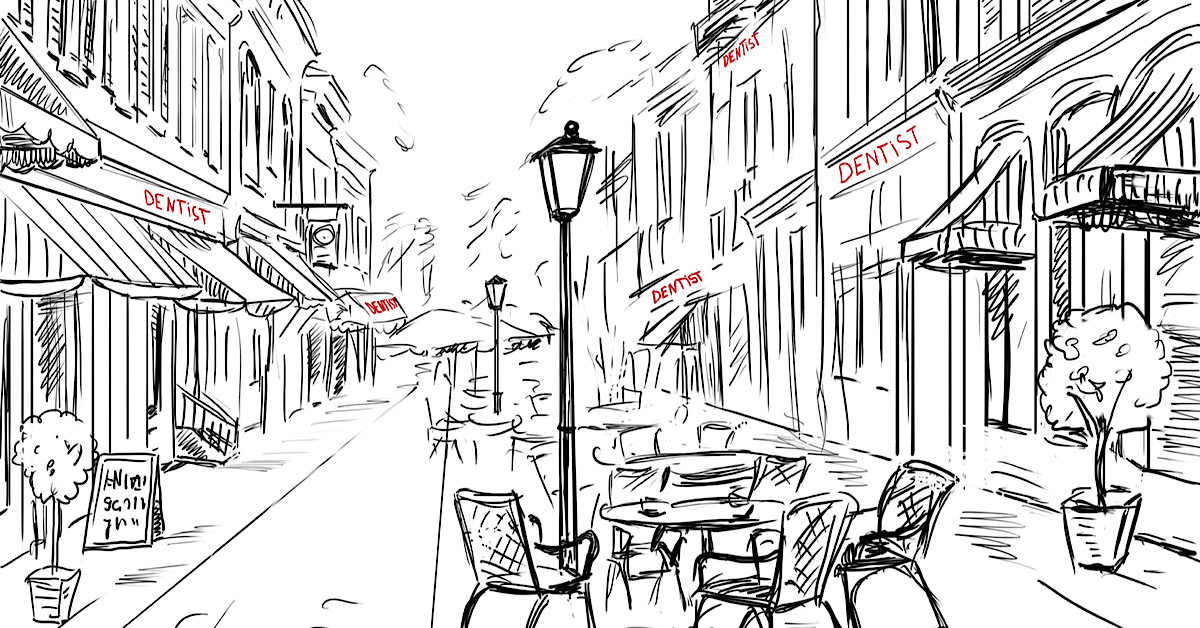No matter if you are a dentist, a lawyer, a carpenter, a manager, a CEO, a counter clerk or a business owner, you only make money when you help people.
If you are the only dentist in town, you can only grow if you expand your offer, that is, the ways you can help people, increasing your portfolio of services, or getting people to ask for your help more often.
But soon others will see the opportunity to grab a piece of your market. They will set their stores in town, with large “dentist” signage at the front. They will start telling people how they can help the townsfolk, better than you can.
As the fight for a piece of the market intensifies, some will get more combative on their strategies. Some will spend money advertising on the local newspaper. Others, more aggressive, will interrupt people conversations to tell they can help them better than the anyone else. Some will give prizes for who brings a new customer. Others will give prizes for the customers that don’t leave. Some will reduce prices to the point of bankruptcy. Others will reduce costs to the point of bad quality.
Many will try to push their offer to help, creating bundled services, trying to force the customer to accept them. But sooner or later all will learn that in a free marketplace the power is in the customers’ hand. Maybe one can push products, services and messages on some customers for a while. Maybe one can distort the truth and break promises for a while. But nobody can do it for long.
In a free marketplace the business role is to place their offer to help, making it the best offer possible. The customers role is to chose who will help them and where they will put their money.
And no matter what is the strategy you are developing: better price, better product, innovative services, higher visibility, better distribution, higher availability, easy access, stronger communication, higher trust; if you want sustainable growth, make sure the essence of what you do boils down to one goal:

